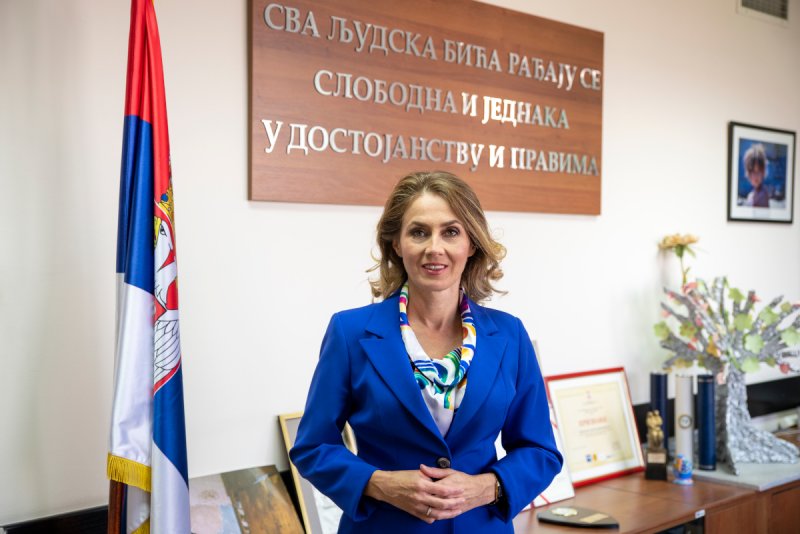At the Olympic Games in Paris, for the first time in history, there will be the same number of male and female competitors, which represents a big step in achieving equality between male and female athletes, but also sends a strong message that every person, from their earliest age, deserves the opportunity to play sports and train, regardless of gender, health or property status, origin, appearance or some other personal characteristic, emphasizes the Commissioner for the protection of equality Brankica Janković, who recently sent recommendations for measures to the Ministry of Sports with the aim of creating more encouraging conditions for girls and women in sports.
The recommendation states, among other things, that the Ministry of Sports, when preparing a proposal for a new strategic document for the development of sports, should devote a special part to the development of women’s sports and its promotion at all levels, as well as that additional funds for investment in women’s sports should be planned when creating measures and activities. Sportswomen achieve extraordinary results, but on the way to the highest awards, they face many obstacles, unequal opportunities, and even discrimination and gender-based violence, says Janković.
Illustrative data from the research show that 14 percent of presidents of sports associations are women, only 17 percent of women are on management boards, and 20 percent are on supervisory boards. Research shows that less than four percent of women exercise regularly and that only 14 percent of young people are physically active. Of all coaches in Serbia, 95 percent are men, while 55 percent of sports associations do not have a single employed female coach. In addition, 11 national confederations do not have a women’s competition, and no sport has had a women-focused awareness campaign or has human resources on gender-based and sexual violence. The number of sports federations that are financed from the budget and that have an action plan for the prevention and suppression of gender-based violence in sports is also negligible.
Even though the number of sportswomen with a professional contract is almost five times less than the number of sportsmen, women have great potential in sports, which is also shown by the fact that 44 percent of women are among the deserving athletes who won medals at the world and European championships. At the Olympic Games in Tokyo, Serbia was represented by more women than men and they won four medals out of a total of nine. Before that, out of nine medals from Atlanta, Sydney, and Athens, four were won by our female athletes, and six out of 15 were won in Beijing, London, and Rio, reminds Janković and expresses the hope that the upcoming games will bring new records to all our athletes and give them an additional incentive to continue to represent their country successfully and in the best way, as well as to be a role model for children and young people, regardless of gender.


